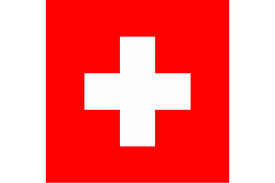SWITZERLAND: Reminder that Job Advertisement Threshold to Change from January 2020
Effective 1 January 2020, employers wishing to hire foreign nationals for occupations with an unemployment rate of 5% or above will have to test the Swiss labor market by advertising. The threshold has been 8% since the requirement was introduced in July 2018.
Employers can check which vacancies are currently affected with an online Check-Up tool.
Exemptions
The job posting can be waived in the following situations:
- Change of position of an employee within the same employer, if he has already been employed by the employer for six months;
- Employing trainees after they have finished their apprenticeship with the same company;
- Employment for a maximum period of 14 days;
- Employment of close relatives if they are to succeed an authorized signatory of the company.
How does it work?
- Positions in these occupations have to be registered to the competent RAV (employment office) via the work.swiss portal, or by email, phone or in person.
- The RAV advertises the position online for five days, during which time the employer may not advertise the position publicly.
- Within three days of publication of the job vacancy on Job-Room, the competent RAV contacts the reporting employer to put forward a list of jobseekers with a matching profile, or to notify them that none are available.
- The employer reviews the list sent over by the RAV and informs it which candidates it deems suitable and has invited to a job interview or an aptitude test, and whether a candidate has been employed. There is no obligation to state reasons, only to notify.
- After five days, the employer can advertise the position publicly.
Consequences for employing EU / EFTA citizens
The job posting is not a precondition for employing and for obtaining the Swiss residence permit for EU/EFTA citizens. Irrespective of whether the job position has been posted, the responsible authority may not deny the EU/EFTA citizen the residence permit. In this case, only the sanctions against the employer are applicable.
Consequences for third-country nationals
For third-country nationals, the job posting is a requirement during the work permit procedure. The employer must provide evidence of the completed job posting. The job posting obligation also applies when changing employers.
If the job posting obligation has been neglected, the work permit will be rejected without further warning. In addition the employer will be faced with additional sanctions.
Sanctions
According to Art. 117a of Foreign Nationals Act, the wilful violation of the obligation to post a job vacancy or the obligation to hold a job interview or a suitability assessment will be punished by a fine of up to 40,000 CHF. In the case of negligence, the penalty can be up to 20,000 CHF.
The person who performed the misconduct and not the company is held responsible.
Our Advice
- Employers in Switzerland intending to hire foreign nationals for occupations with an unemployment rate of 5% or above should allow for a five-day delay for advertising.
Wolfsdorf Rosenthal LLP keeps their clients apprised of immigration resources around the world. Subscribe to our Newsletter to stay in the know about immigration news and resources from around the world. Should you have any questions or for case specific information, please contact a Wolfsdorf Rosenthal immigration attorney or email the WR Global Immigration team Global@Wolfsdorf.com


